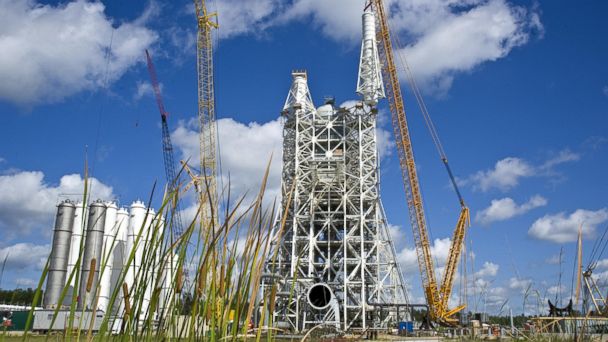$350M+ Spent on NASA Tower Project That Never Took Off

(NASA)
There is a rocket tower in Mississippi that's ready to test NASA engines powerful enough to propel a rocket to the moon and to Mars.
There's one problem: NASA canceled the rocket it planned to use to take man to the moon and Mars in 2010.
$14M wasted on broadband effort in West Virginia alone.
Watch: Taxpayers' money spent on portraits.
Taxpayer waste: $18 billion listed.
Despite that, Congress ordered the agency to keep building the tower anyway. The entire cost of the program totaled $350 million. And that wasn't all.
Congress also ordered NASA to keep the tower in working condition at an additional cost of $700,000 a year.
"My view of this test stand is that it is a sort of a classic example of the space program now being more about jobs and people's districts than about the very exciting purpose of NASA," said Lori Garver, a former NASA deputy administrator. "We shouldn't be directed by just a couple of contractors and individuals to do self-serving programs like this one."
ABC News met with Sen. Roger Wicker, whose Mississippi congressional delegation saved the tower, to ask Wicker whether the tower was about saving the largest employer in the county - the John C. Stennis Space Center - or to advance space travel.
Wicker told ABC News that he hoped the tower proved to be "good money well-spent."
"The country will benefit from it," Wicker said. "It is an investment and I do believe a decade or so from now we'll look back on it and say, 'It is money well-spent because the program has been revived.' That is the hope."
The program has not yet been revived and the Obama administration has no plans to test the rockets.
"I hope the question is not so much why we continued building a partially built facility," Wicker said. "I hope the question also becomes why did the president decide to cancel this program when science and technology has given us so much information and so much research. … That ought to be the question. Was the decision of the Obama administration ill-founded? And I believe it was."
ABC News' Jim Avila contributed to this story.